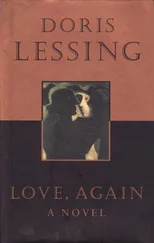DORIS LESSING
Prisons We Choose to Live Inside
‘It would be a good thing if man concerned himself more with the history of his nature than with the history of his deeds.’
Friedrich Hebbel
‘It is useless to close the gates against ideas; they overleap them.’
Wenzel Lothar Metternich
‘To have doubted one’s own first principles is the mark of a civilized man.’
‘The mind of a bigot is like the pupil of the eye; the more light you pour upon it the more it will contract.’
O. W. Holmes Jr
Cover
Title Page DORIS LESSING
Epigraph ‘It would be a good thing if man concerned himself more with the history of his nature than with the history of his deeds.’ Friedrich Hebbel ‘It is useless to close the gates against ideas; they overleap them.’ Wenzel Lothar Metternich ‘To have doubted one’s own first principles is the mark of a civilized man.’ ‘The mind of a bigot is like the pupil of the eye; the more light you pour upon it the more it will contract.’ O. W. Holmes Jr
When in the Future They Look Back on Us
You Are Damned, We Are Saved
Switching Off to See Dallas
Group Minds
Laboratories of Social Change
Unexamined Mental Attitudes Left Behind by Communism
Keep Reading
About the Author
Also by the Author
Copyright
About the Publisher
Prisons We Choose to Live Inside is the title of the Massey series of lectures originally given by Doris Lessing under the auspices of the Canadian Broadcasting Corporation in 1985. The individual titles of the lectures are as follows: ‘When in the Future They Look Back on Us’, ‘You Are Damned, We Are Saved’, ‘Switching Off to See Dallas’, ‘Group Minds’, and ‘Laboratories of Social Change’.
The Massey Lectures were created in honour of the Right Honourable Vincent Massey, former Governor-General of Canada and were inaugurated by the CBC in 1961 to enable distinguished authorities to communicate the results of original study or research on subjects of general interest.
‘Unexamined Mental Attitudes Left Behind by Communism’ is the title of a lecture originally delivered by Doris Lessing at a conference ‘Intellectuals and Social Change in Central and Eastern Europe’ at Rutgers University in April 1992.
When in the Future They Look Back on Us
THERE WAS ONCE a highly respected and prosperous farmer, who had one of the best dairy herds in the country, and to whom other farmers came from all over the southern half of the continent for advice. This was in the old Southern Rhodesia, now Zimbabwe, where I grew up. The time was just after the Second World War.
I knew this farmer and his family well. The farmer, who was Scottish in origin, decided to import a very special bull from Scotland. This was just before science had discovered how to send potential calves from one continent to another by airmail in small packages. The beast in due course arrived, flown in, naturally, and was welcomed by a reception committee of farmers, friends, experts. He cost £10,000. I don’t know what that would be now, but it was a very large sum for the farmer. A special home was made for him. He was a massive, impressive animal, mild as a lamb, it was claimed, and he liked to be tickled at the back of his head with a stick held safely at a distance, from behind the bars of his pen. He had his own keeper, a black boy of about twelve. All went well; it was clear the bull would soon become the father of a satisfactory number of calves. He remained an attraction for visitors, who would drive out on a Sunday afternoon to stand about the pen, brooding over this fabulous beast, who looked so powerful and who was so docile. And then he suddenly and quite inexplicably killed his keeper, the black boy.
Something like a court of justice was held. The boy’s relatives demanded, and got, compensation. But that was not the end of it. The farmer decided that the bull must be killed. When this became known, a great many people went to him and pleaded for the magnificent beast’s life. After all, it was in the nature of bulls to suddenly go berserk, everyone knew that. The herd boy had been warned, and he must have been careless. Obviously, it would never happen again … to waste all that power, potential, and not to mention money – what for?
‘The bull has killed, the bull is a murderer, and he must be punished. An eye for an eye, a tooth for a tooth,’ said the inexorable farmer, and the bull was duly executed by firing squad and buried.
Now, as I’ve said, this farmer was not some ignoramus, or bumpkin. Moreover, like all his kind – the ruling white minority – he spent a good deal of time condemning the blacks who lived all around him for being primitive, backward, pagan, and so forth.
But what he had done – this act of condemning an animal to death for wrong-doing – went back into the far past of mankind, so far back we don’t know where it began, but certainly it was when man hardly knew how to differentiate between humans and beasts.
Any tactful suggestions along these lines from friends or from other farmers were simply dismissed with ‘I know how to tell right from wrong, thank you very much.’
There is another incident. A certain tree was once sentenced to death, at the end of the last war. The tree was associated with General Pétain, for a time considered France’s saviour, then France’s betrayer. When Pétain was disgraced, the tree was solemnly sentenced and executed for collaborating with the enemy.
I often think about these incidents: they represent those happenings that seem to give up more meaning as time goes on. Whenever things seem to be going along quite smoothly – and I am talking about human affairs in general – then it is as if suddenly some awful primitivism surges up and people revert to barbaric behaviour.
This is what I want to talk about in these five lectures: how often and how much we are dominated by our savage past, as individuals and as groups. And yet, while sometimes it seems as if we are helpless, we are gathering, and very rapidly – too rapidly to assimilate it – knowledge about ourselves, not only as individuals, but as groups, nations, and as members of society.
This is a time when it is frightening to be alive, when it is hard to think of human beings as rational creatures. Everywhere we look we see brutality, stupidity, until it seems that there is nothing else to be seen but that – a descent into barbarism, everywhere, which we are unable to check. But I think that while it is true there is a general worsening, it is precisely because things are so frightening we become hypnotized, and do not notice – or if we notice, belittle – equally strong forces on the other side, the forces, in short, of reason, sanity and civilization.
And of course I know that as I say these words there must be people who are muttering, ‘Where? The woman must be crazy to see anything good in this mess we are in.’
I think this sanity must be looked for in precisely this process of judging our own behaviour – as we examine the farmer who executed an animal to make it expiate a crime, or the people who sentenced, and executed, a tree. Against these enormously powerful primitive instincts, we have this: the ability to observe ourselves from other viewpoints. Some of these viewpoints are very old – much older perhaps than we realize. There is nothing new in the demand that reason should govern human affairs. For instance, in the course of another study, I came upon an Indian book, a good two thousand years old, a manual for the sensible governing of a state. Its prescriptions are every bit as cool, sensible, rational as anything we could come up with now; nor does it demand any less in the way of justice, even as we understand justice. The reason I am mentioning this book at all – it is called the Arthásàstra , by the way, and was written by one Kautilya, and is unfortunately hard to come by outside specialist libraries – is that this book that seems so unimaginably old talks of itself as the last in a long line of similar books.
Читать дальше











